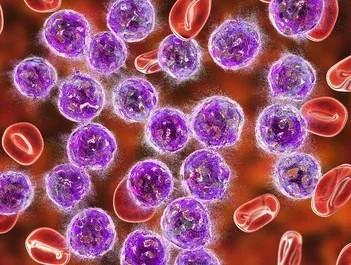A recent study published in Nature Communications reveals a groundbreaking finding regarding the interplay between metabolic health and healthy aging. Researchers have demonstrated that lowering the activity of RNA polymerase I (Pol I), a key enzyme involved in ribosome production, can lead to enhanced mitochondrial function and a more stable metabolism in the nematode Caenorhabditis elegans. This, in turn, extends the lifespan of the organism.
Ribosomes, which are responsible for protein synthesis in all living organisms, are composed of ribonucleic acid (RNA) and proteins. The production of ribosomes begins with Pol I synthesizing pre-rRNA, a precursor transcript of ribosomal RNA (rRNA). Previous studies have suggested a link between reduced Pol I activity and longer lifespan, but the underlying mechanism was not fully understood until now.
The collaborative research effort, led by Maria Ermolaeva’s team at the Leibniz Institute on Aging—Fritz Lipmann Institute (FLI) and Holger Bierhoff’s group at Friedrich Schiller University Jena, shed light on how inhibiting Pol I activity can positively impact metabolic fitness and prolong healthy lifespan. The study revealed that by decreasing Pol I activity, the nematodes showed improved mitochondrial function, reduced triglyceride expenditure, and suppressed mitochondrial respiration, all of which contribute to extended longevity and enhanced metabolic health.
Interestingly, while genetically modifying the nematodes to increase Pol I activity initially led to improved physical performance, it eventually resulted in accelerated metabolism deterioration and premature aging. These findings underline the critical role of Pol I activity in regulating energy consumption and metabolic processes, with implications for both aging and overall health.
Moreover, the study suggests that targeted regulation of Pol I activity could serve as a potential intervention for promoting healthy aging in humans. The researchers noted that reducing rRNA synthesis, particularly in older individuals, may not only improve metabolic health but also reduce the risk of cancer, as elevated ribosome biogenesis is often associated with cancer development.
Additionally, the study warned against the potential risks of excessive dietary protein intake, as it can stimulate Pol I activity and accelerate the aging process. While protein consumption is commonly linked to muscle growth and physical fitness, overconsumption of protein-rich foods and supplements may have long-term consequences on metabolic health and organ function in late life.
Overall, the findings from this study offer valuable insights into the molecular mechanisms that influence longevity and healthy aging. By understanding the impact of Pol I activity on metabolic health, researchers aim to explore new avenues for developing therapies that promote healthy aging and mitigate age-related diseases.
Note:
1. Source: Coherent Market Insights, Public sources, Desk research.
2. We have leveraged AI tools to mine information and compile it.


